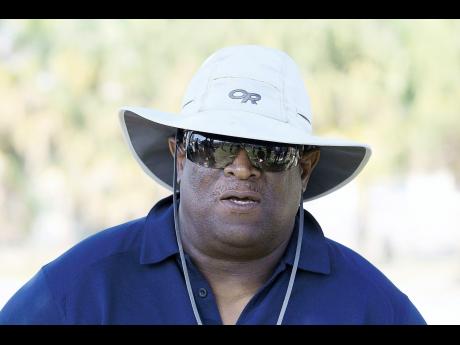Get used to more relay rows
The more things change, the more they remain the same. The last World Relays in The Bahamas threw up another controversy. Shelly-Ann Fraser's absence from the 4x100m final is a hotly debated issue, and has reminded us that we have a long way to go in ironing out our difficulties in the arena of global relays.
The public, rightly so, has got tired of this recurring relay row about who should run, and on what leg. The problem, clearly, is that once we get to these global meets, we haven't yet worked out where the authority of the personal coaches and their athletes stops, and where the authority of the national coaches begins. It's a dilemma that's not easy to solve.
Shelly-Ann, in The Bahamas, was merely following her coach's instructions when she pulled out of the final. It was an altogether regrettable situation, especially when one remembers the status that Shelly-Ann now enjoys. For a Jamaican ambassador to refuse to represent Jamaica at a global event is, in itself, disappointing.
Shelly's loyalty
Shelly's action should come as no real surprise, however. We have to be able to see her dilemma. It wasn't the national coaches that honed her skills and made her into the top female sprinter in the world over the last seven years. It wasn't the national coaches who made her into a household name globally. It wasn't the national coaches who helped develop a skill that has made her marketable enough so that she has improved her lifestyle from relative poverty to relative affluence.
Love him or hate him, it is Stephen Francis, not Jamaica, per se, who is responsible for all Shelly-Ann has accomplished. That she should be blindly loyal to him is understandable, even expected. The belief that sportsmen and women ought to put Jamaica first is nothing more than stale patriotic rhetoric that we shouldn't take at face value. Humans, by nature, look out for themselves and their loved ones first. The theory that she should put Jamaica ahead of the man who essentially helps put food on her table is simplistic, to say the least.
Having said all that, I, too, am getting tired of these relay controversies. Maybe the time has come for us to put measures in place that ensure that we don't have a repeat of this. I don't see how we can create systems that will go after coaches. Stephen Francis, for instance, runs a private enterprise, and I'm not sure how much authority the Jamaica Athletics Administrative Association can have over him.
But the athletes, certainly, while they are competing in Jamaican colours, are all under the auspices of the local track and field body. Maybe we should get the sprinters to sign a document, after national trials, that compels them to adhere to the word of the national coaches on the issue of relays. If they fail to do so, they could be fined or suspended.
It cannot be that athletes refuse to run in the relays, or refuse to run a leg to which they have been assigned, once they have been mandated to do so by the national coaches at these global meets. It doesn't look good and sends a bad message to the world that we can't even unite on as simple a matter as a relay!
Even as I say that, I accept that even what I suggested wouldn't necessarily solve anything. The athlete may simply say he or she doesn't wish to compete in the relays, that all they are interested in are the individual sprints. In such a case, could they be sanctioned?
disciplinary action
If an athlete who finishes in the top four in the 100 metres at trials says he or she has no interest in the relays, can there be any disciplinary action taken against them? I doubt it. Therefore, we would be back to square one. Even if the athletes agree, whether verbally or in writing, to run the relays, and to abide by the dictates of the national coaches, they could always 'get injured' after their individual events and be 'unable' to do the relays.
So legislation may not solve our problems when it comes to our kerfuffles at these global relays. If legislation can't solve it, what can?
Maybe it's time for some 'big' men to sit around a table and try to arrive at a consensus. Based on what I have seen over the years, I'm not holding my breath on that happening. This problem of last-minute relay pull-outs may, therefore, be with us for some time yet. We might just have to get used to it.
- Orville Higgins is a sports journalist and talk-show host at KLAS ESPN Sports FM. Email feedback to columns@gleanerjm.com.


